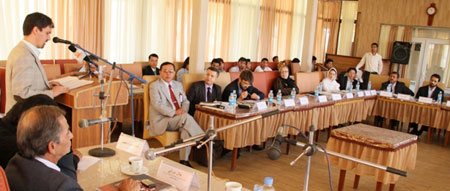The input and recommendations of the Civil Society and Human Rights Organisation to the Tokyo International Conference on Afghanistan
In the name of Almighty Allah The input and recommendations of the Civil Society and Human Rights Organisation to the Tokyo International Conference on Afghanistan Kabul - June 2012 Preamble During the past ten years Afghanistan has gained some important achievements in the fields of social, economic and political development. Despite these achievements Afghanistan has also experienced a lot of challenges such as; Lack of security, the interference of neighbouring countries into interior affairs of Afghanistan, corruption and production and trafficking of narcotics which are the main challenges in the past ten years. The role of the international community in Afghanistan is very important. The military intervention of the international community in Afghanistan created the new opportunities for the afghan people. However the operation against terrorism in Afghanistan has resulted high number of mortality. Regardless of this fact the people of Afghanistan are aware of the importance of the role of the international community in Afghanistan. As a result of the new environment in Afghanistan the people of the country have achieved their goal of creating a new constitution which opened the door of opportunities for a new Afghanistan. According to the new constitution the democratic institutions in Afghanistan have been established, the civil society has developed rapidly, the political parties have received the opportunities to be established, the human rights movements were established and the women rights activists created their organizations to protect the rights of women in Afghanistan. The afghan media has also had a major progressive development. In the field of technology and communication the country has had massive improvements. Mine production has also witnessed a lot of progressive steps towards development. In the field of agriculture Afghanistan has also developed. The banking system has been modernized. The Afghan people have exercised four…
